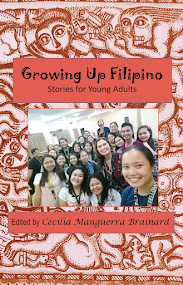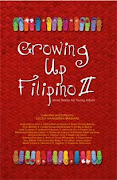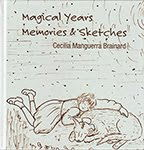Yesterday's reading was: Matthew 15, 1-2, 10-14. In this reading, Christ teaches his disciples that it is not what goes into the mouth that defiles, but what comes out of the mouth. He explains saying what comes out of the mouth comes from the heart, and these are evil thoughts. I read and reread but didn't get any insight beyond Jesus chiding the Pharisees who criticized his disciples for breaking tradition by not washing their hands. Jesus is saying that is not important; what is important is what is in your hearts.
Today's reading is: Matthew 17, 1-9, about Christ's transfiguration. He takes Peter, James and John to the mountain where He is transfigured and Moses and Elijah appear and talk to Him. The bible account does not elaborate, but this scene must have taken the apostles' breath away - Jesus shines like the sun, Moses and Elijah appear and talk to Jesus. And after this shocking scene when the others are no doubt dumbfounded, Peter manages to talk. Peter talks a lot, and he says, "If You wish, let us make here three tabernacles ..." And then a cloud comes over them and a voice is heard, "This is my beloved Son, in whom I am well pleased. Hear Him!"
Jesus shining like the sun was strange enough; Moses and Elijah appearing is stranger still, and now the voice - too much! They fall and cower from fear. Then this is what Jesus does: He touches them and says, "Arise and do not be afraid." When they open their eyes, they see Jesus. As they descend the mountain, Jesus tells them to tell no one until the "Son of Man is risen from the dead."
The word that attracted me was "touch" - Jesus touched the apostles. He not only said, "Do not be afraid," but he touched them. There are many references to "touching" in the bible - the sick who touch Jesus or touch the hem of his clothes, Jesus touching them to heal them. And Jesus saying, Touch me not, when He was risen.
Jesus was very human. Yes, He shone like the sun and conversed with Moses and Elijah, but He was/is not distant from man. He is someone who "touches" man in order to drive away his fears, in order to heal him; that is, He addresses man's physicality. He fed the multitude of people at the Mount; He broke bread and gave this to His disciples. He drank wine and ate and attended wedding feasts and visited his friends in Bethany (Lazarus, Martha, and Mary). There is a scene after His crucifixion, where Jesus prepared breakfast for His disciples on the shore of Galilee. He was and is very aware of our humanity: our pains, our hunger, our anxieties; and He ministers to these. He gave His disciples the power to heal.
The religion that Jesus established was/is meant to be a down-to-earth one that ministers to people in basic ways. Mother Teresa of Calcutta was being Christ-like when she ministered to the dying and the poorest of the poor. We, in turn, should be the hands and feet and body of Christ and attend to people's physical needs - hunger, thirst, miseries, etc.
Wednesday, August 6, 2008
More of Lectio Divina
Labels:
lectio divina,
religion
 Cecilia Manguerra Brainard's official website is ceciliabrainarddotcom. She is the award-winning author and editor of 22 books, including When the Rainbow Goddess Wept, The Newspaper Widow, Magdalena, Selected Stories, Vigan and Other Stories, and more. She edited Growing Up Filipino 1, 2, & 3, Fiction by Filipinos in America, Contemporary Fiction by Filipinos in America, and other books..
Her work has been translated into Finnish and Turkish; and many of her stories and articles have been widely anthologized.
Cecilia has received many awards, including a California Arts Council Fellowship in Fiction, a Brody Arts Fund Award, a Special Recognition Award for her work dealing with Asian American youths, as well as a Certificate of Recognition from the California State Senate, 21st District, and the Outstanding Individual Award from her birth city, Cebu, Philippines.
She has lectured and performed at UCLA, USC, University of Connecticut, University of the Philippines, PEN, Shakespeare & Company in Paris, and many others. She has served in the Board of literary arts groups such as PEN, PAWWA (Pacific Asian American Writers West), among others.
Cecilia Manguerra Brainard's official website is ceciliabrainarddotcom. She is the award-winning author and editor of 22 books, including When the Rainbow Goddess Wept, The Newspaper Widow, Magdalena, Selected Stories, Vigan and Other Stories, and more. She edited Growing Up Filipino 1, 2, & 3, Fiction by Filipinos in America, Contemporary Fiction by Filipinos in America, and other books..
Her work has been translated into Finnish and Turkish; and many of her stories and articles have been widely anthologized.
Cecilia has received many awards, including a California Arts Council Fellowship in Fiction, a Brody Arts Fund Award, a Special Recognition Award for her work dealing with Asian American youths, as well as a Certificate of Recognition from the California State Senate, 21st District, and the Outstanding Individual Award from her birth city, Cebu, Philippines.
She has lectured and performed at UCLA, USC, University of Connecticut, University of the Philippines, PEN, Shakespeare & Company in Paris, and many others. She has served in the Board of literary arts groups such as PEN, PAWWA (Pacific Asian American Writers West), among others.
Subscribe to:
Post Comments (Atom)


























No comments:
Post a Comment